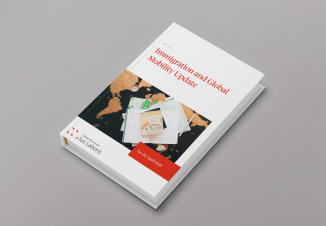
Well, from a legal point of view, there may be some things to think about. If you have people working from a country in which you don’t have a permanent establishment (‘satellite workers’), there is a whole list of considerations – and the rules vary in different countries. In some, you will find that certain steps are forbidden, whereas in others, they may be allowed or encouraged.
Our checklist covering 20+ countries, sets out what is (i) forbidden; (ii) required; (iii) recommended or (iv) not required under the rules of each country, when you, as a foreign employer, hires someone to work there. In the chart below, you will see each country represented by a colour that shows the average of its scores across various different topics (listed below), to give you an indication of how generally restrictive or permissive the country is.
In this webinar, which took place on 16 Feburary 2023, our panel from Italy, Belgium, Switzerland and the UK looked at your obligations as an employer (set-up and administrative obligations, applicable law, policies, health & safety, regulation of remote working, potential risks etc). With loads of useful tips, this webinar is a great shortcut to finding out what you need to do. Our hosts are: Melania Soncin (Italy), Sophie Maes (Belgium), Roberta Papa (Switzerland), Valeria Morosini (Italy), and Amy Navins (UK).
For more information about employing foreign workers



